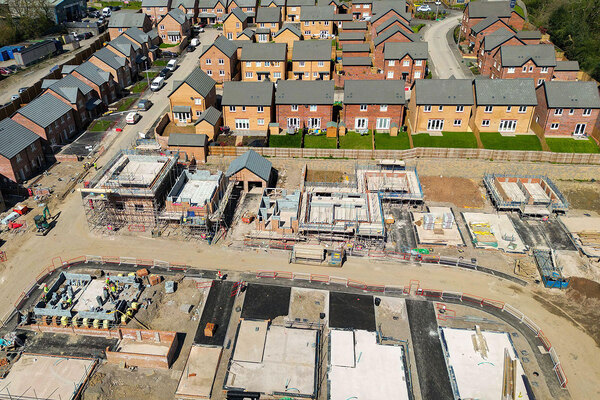More grant funding and rent settlement confirmed for next Spending Review
Grant funding for affordable homes and certainty around rent-setting will be brought forward at the next Spending Review, the government has confirmed.

Angela Rayner, deputy prime minister and housing secretary, said she would provide more direct grant funding and greater certainty around rent stability to help social housing providers “plan for the future”.
In a briefing today, Ms Rayner said the certainty will allow the sector to borrow and invest in new and existing homes and deliver “the biggest increase in affordable housebuilding in a generation”.
The confirmation of new funding and a rent settlement later this year came as the government announced a series of short-term interventions to stabilise affordable housing supply and give confidence to the sector before the next Budget on October 30.
This includes giving councils more flexibility around the Right to Buy and in the Affordable Homes Programme for the Greater London Authority, to unlock delivery in the capital.
Ms Rayner also launched a new draft National Planning Policy Framework (NPPF) on 30 July, designed to increase housing targets for councils and encourage the release of ‘grey-belt’ and green-belt land. Under the government’s new ‘golden rules’, developers who build on newly released green-belt land will be required to build 50% affordable housing.
The updated NPPF will introduce a new method for calculating housing targets for local authorities. Every part of the country will have to grow its housing stock by 0.8%, with an added ratchet for areas where homes are particularly unaffordable, such as London and the South East.
Where local authorities do not have up-to-date plans or enable sufficient housing to come forward to meet local targets, developers can bring proposals on grey-belt land forward. Land that is safeguarded for environmental reasons will continue to be protected.
The capital will be given a new building target of 80,000 homes, lower than the goal set by the previous government, but still well above the 35,000 homes delivered in the city last year.
Nigel Hugill, chief executive of Urban & Civic, the developer, said: “Recent experience is that setting clear targets for each local planning authority is absolutely fundamental to lifting housing numbers. Equally, the wholehearted embracing of a mix of tenures is also to be applauded.”
Finally, the consultation proposes to remove references to “beauty” in the NPPF.
The NPPF consultation is open until 24 September. It will be followed by further reforms in the Planning and Infrastructure Bill, which will introduce more delegation to focus planning committees on “the applications that really matter” and allow councils to set their own planning fees.
A “universal system” of strategic planning across England will also be introduced by the end of the parliament.
Councils will be given the ability to combine Right to Buy receipts with Section 106 contributions for an initial two years, subject to review. Ministers will also remove the caps on the percentage of replacements delivered as acquisitions and the percentage cost of a replacement home that can be funded using Right to Buy receipts.
The government has begun a wider review of the Right to Buy, which includes looking at the increased discounts introduced in 2012, eligibility criteria and protections for new homes. It will bring a consultation forward in the autumn.
Round three of the Local Authority Housing Fund will go ahead, with £450m given to councils to acquire and create homes for families at risk of homelessness.
The government also confirmed that it will press on with Conservative plans to introduce Awaab’s Law in the social rented sector, with more detail and secondary legislation to implement this in due course.
Ms Rayner said: “Our decisive reforms to the planning system correct the errors of the past and set us on our way to tackling the housing crisis, delivering 1.5 million homes for those who really need them.
“And something I am personally proud of, our new flexibilities for councils will boost the number of social and affordable homes, and give working families a better route to a secure home.”
Victoria Hills, chief executive of the Royal Town Planning Institute, said the proposed changes “have the potential to rebuild trust in our planning system”.
António Simões, group chief executive of Legal & General, said: “This package of reforms is an opportunity to get millions of pounds worth of projects moving, with real-world impact on housing quality and availability, infrastructure and growth industries. It will also ensure that policies to drive pensions capital into productive assets have maximum benefit on the ground, and on savers’ returns.”
Sign up for our development and finance newsletter
Already have an account? Click here to manage your newsletters











